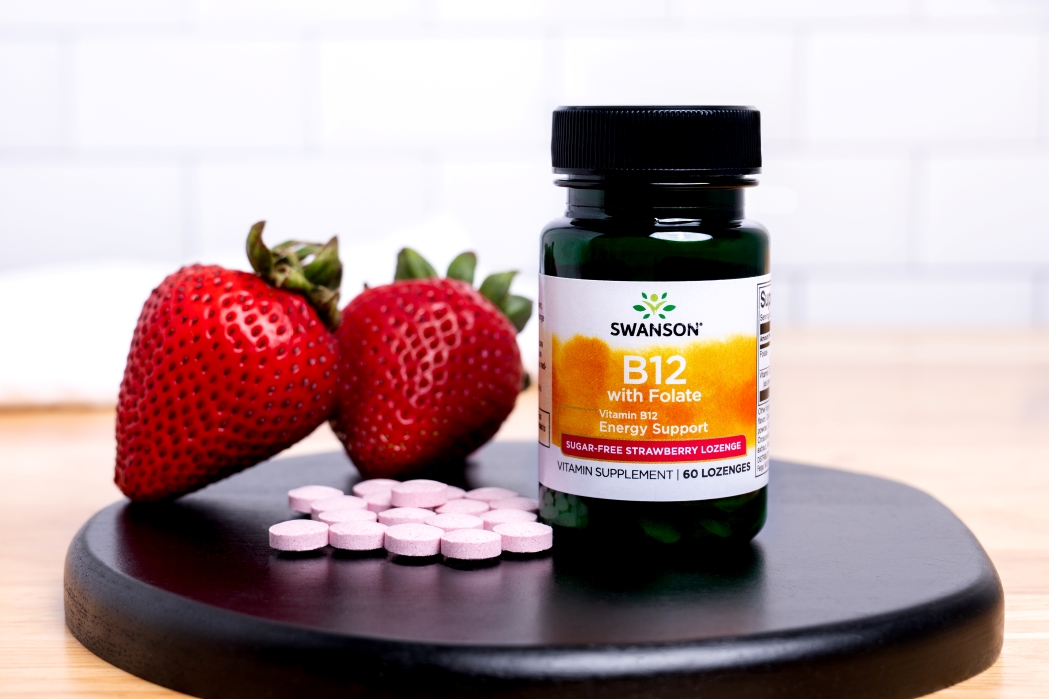Vitamin B12 and it's Benefits for the Immune System

A robust immune system is crucial for defending the body against infections and diseases. Vitamin B12 plays a vital role in supporting immune system function and ensuring its optimal performance. In this article, we will explore how Vitamin B12 supports the immune system, delve into the research on its impact on immune response, and provide recommendations for maintaining an effective immune system through adequate B12 intake.
How Vitamin B12 Supports Immune System Function
Vitamin B12 contributes to a healthy immune system through various mechanisms. It plays a pivotal role in the production and maturation of immune cells, such as white blood cells, which are the body's primary defence against pathogens. B12 is involved in DNA synthesis and cell division, critical processes for the proliferation of immune cells. It helps maintain the integrity of the immune system's barrier function, preventing the entry of harmful microorganisms. Additionally, Vitamin B12 supports the development and activation of antibodies, which are essential for recognizing and neutralizing pathogens.
Research on Vitamin B12's Impact on Immune Response
Numerous studies have explored the relationship between Vitamin B12 status and immune response, providing valuable insights into the role of B12 in maintaining a robust immune system. Research has indicated that B12 deficiency may have adverse effects on various components of the immune system, potentially compromising its ability to defend against infections.
One aspect that researchers have investigated is the impact of B12 deficiency on immune cell activity. Immune cells, such as lymphocytes and phagocytes, play crucial roles in recognizing and eliminating pathogens. Studies have shown that inadequate B12 levels can lead to decreased proliferation and impaired function of these immune cells, impairing the body's ability to mount an effective immune response. Consequently, individuals with B12 deficiency may be more susceptible to infections and experience prolonged recovery periods.
In addition to immune cell activity, B12 has been found to influence the production of cytokines, which are signalling molecules that regulate immune responses. Cytokines help orchestrate the immune system's complex network of defence mechanisms. Research has demonstrated that B12 deficiency can lead to altered cytokine production, which may negatively impact immune response and increase susceptibility to certain diseases.
Furthermore, B12 has been implicated in modulating the function of natural killer (NK) cells, which are specialized immune cells responsible for recognizing and eliminating virus-infected cells and cancer cells. Studies have shown that adequate B12 levels are necessary for optimal NK cell activity, while deficiencies can impair their function and reduce their ability to mount an effective immune response against infected or abnormal cells.
Moreover, B12 deficiency has been associated with changes in gut microbiota composition, which can impact immune function. The gut microbiota plays a critical role in immune regulation and defence against pathogens. Alterations in gut microbiota due to B12 deficiency may disrupt the delicate balance of the immune system, compromising its ability to ward off infections.
While research supports the connection between B12 status and immune response, it is important to note that more studies are needed to fully elucidate the mechanisms involved and establish optimal B12 levels for immune health. Nonetheless, maintaining adequate Vitamin B12 levels through a balanced diet or supplementation appears to be a sensible approach to support a healthy immune system.
Recommended Intake for Immune System Support
To maintain a strong immune system, it is crucial to ensure an adequate intake of Vitamin B12. The recommended dietary allowance (RDA) for Vitamin B12 varies depending on age, gender, and individual factors. According to the UK guidelines, adults aged 19-64 years are advised to aim for approximately 1.5 micrograms (µg) of Vitamin B12 per day. However, specific requirements may vary, and it is best to consult with a healthcare professional or registered dietitian to determine the appropriate intake for your unique needs.
In conclusion, Vitamin B12 plays a significant role in supporting immune system function and maintaining a strong defence against infections. Its involvement in immune cell production, DNA synthesis, and antibody development highlights its importance for optimal immune response. Adequate intake of Vitamin B12 through a balanced diet or supplementation can contribute to a well-functioning immune system. By prioritizing B12 as part of a comprehensive approach to health, individuals can help support their immune system and promote overall well-being.
References
National Health Service (NHS). (2022). Vitamins and minerals - B vitamins and folic acid. Retrieved from https://www.nhs.uk/conditions/vitamins-and-minerals/vitamin-b/
British Dietetic Association (BDA). (2019). Food Fact Sheet - Vitamin B12. Retrieved from https://www.bda.uk.com/resource/vitamin-b12.html
Office of Dietary Supplements - National Institutes of Health. (2021). Vitamin B12 Fact Sheet for Health Professionals. Retrieved from https://ods.od.nih.gov/factsheets/VitaminB12-HealthProfessional/
Carr, A. C., & Maggini, S. (2017). Vitamin C and Immune Function. Nutrients, 9(11), 1211. doi: 10.3390/nu9111211.
Martineau, A. R., Jolliffe, D. A., Hooper, R. L., Greenberg, L., Aloia, J. F., Bergman, P., & Vitamin D supplementation to prevent acute respiratory tract infections: systematic review and
Watanabe, F., & Bito, T. (2018). Vitamin B12 Sources and Bioavailability. Experimental Biology and Medicine, 243(2), 148–158. doi: 10.1177/1535370217746610.
Troesch, B., & Goralczyk, R. (2018). Vitamin B12 Deficiency in Elderly Individuals. Current Gerontology and Geriatrics Research, 2018, 1–7. doi: 10.1155/2018/2496407.















